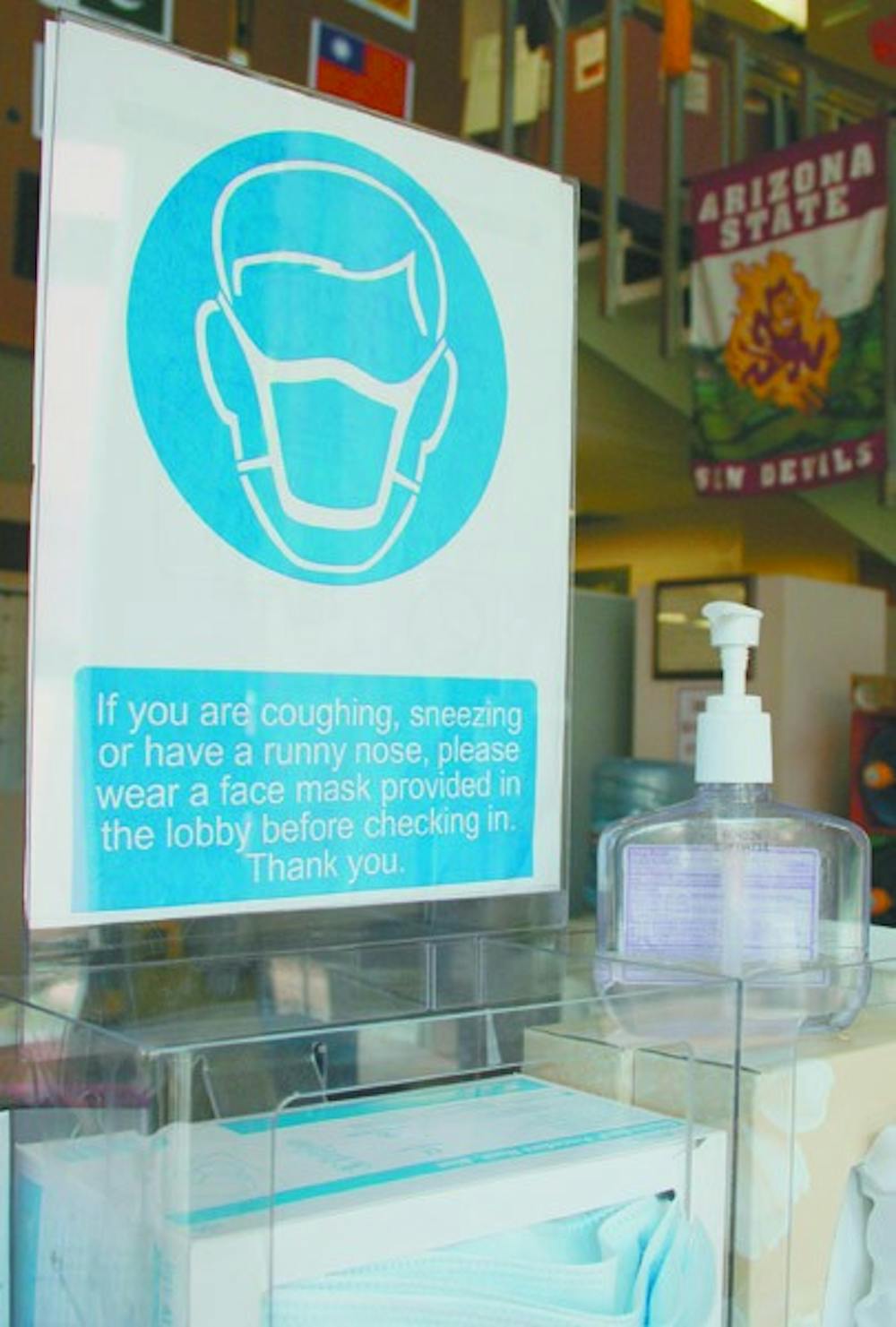With the increase of seasonal flu cases throughout the University, ASU officials have warned teachers that student absences could extend more than a week, a time frame that conflicts with some teacher’s classroom policies.
Provost and Executive Vice President Elizabeth Capaldi sent a message to faculty on Tuesday that stated students absent with the flu might miss five to seven class days. University policy states that attendance requirements are up to teachers’ discretion.
Delia Saenz, the vice provost for undergraduate education, said administrators are working with professors, departments and colleges to let them know about attendance issues during flu season.
“We have sent out a message to faculty indicating that they should all be concerned with their own welfare, as well as the welfare of the community,” she said. “Students will get ill; we all will get ill.”
Downtown campus Spanish professor Michelle Petersen typically has a strict attendance policy.
“For learning languages, you have to be in class,” she said.
Petersen only allows two absences for students and requires documentation of an illness by a health professional.
Although her stand on attendance is firm, Petersen said that she will consider the flu season when making decisions on attendance.
“I don’t want sick students to infect classmates or me,” she said.
Psychology professor Wanda Weber teaches at both the Polytechnic and Downtown campuses and understands that students will get sick.
“Life happens,” she said, adding that with a note from a doctor she excuses absences as long as they are not an ongoing problem.
But keeping sick students away from classes may prove to be difficult.
Journalism freshman Hillary Schuck said despite warnings to stay home, she attended class when she was sick.
“I had too many classes, too much to do,” she said. “I had to suck it up and deal with it.”
Although academic success is a primary goal for students and faculty, Saenz said students should not ignore flu-like symptoms.
“The symptoms are severe enough that students need to get health care,” she said. “We are recommending students get help sooner than later.”
Because of the large volume of flu cases, professors are asked to be more flexible with their attendance policies.
Saenz said that it is important for students to contact professors with the first signs of the flu. Students should ask faculty about their policy toward absences rather than listening to rumors.
“[Staff members] do need to work with students,” she said. “The general policy is that [staff] allow students to have make-up work.”
The steep spike in students with the flu has faculty members concerned. Saenz said the number of students who have reported their illness to health services is greater than what they have seen in the past years, even outnumbering those from last year with H1N1. During peak flu season this year ASU Health Services has seen about 98 flu cases a week from students living on campus compared to last year where only about 82 cases a week were reported.
“I wouldn’t say we’re at a pandemic or epidemic rate at this point,” she said. “But looking at the trajectory, we are proportionally seeing more than we would otherwise see.”
Health services on all campuses are still offering flu vaccines to students. Saenz said the best cure is prevention. Students are encouraged to wash their hands with soap and warm water, be careful where they cough and to get health care early.
Faculty members are urged to inform all students of ways they can complete course work if they are absent because of the flu.
Reach the reporter at tafergu1@asu.edu





